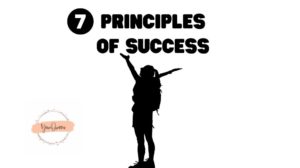You are not the only one. Even the best speakers in the world and the most famous singers and actors suffer from a stage fright. Jitters can have a positive effect; they push us further and make us give our best. However, the problem occurs when the fear of performance blocks a person completely; you forget your lines, start stuttering or sweating excessively. How to overcome a stage fright? Here are a few tips to help you gain control and become a confident and persuasive speaker.
1. Prepare Yourself
Weather you are about to take an oral exam, participate in a play or present a project in front of important clients, it is crucial that you are well prepared.
Singers and actors learn their lines by heart; good public speakers know their subject well.
When preparing yourself for a presentation or an exam, take notes, divide your speech into sections; introduction, main subject, conclusion.
Before you’re about to step in front of the audience run through your notes again. Keep them in front of you during your exposé if possible; you’ll be more confident. Make a plan and prepare well. The best way to overcome stage fright is to know what you are talking about, and know it well.
2. Practice
Practice your speech or performance with your friends and family as an audience. After you finish, ask them to point out your mistakes so you could work on them.
A practice in front of a mirror can be helpful as well. Make sure you concentrate on the important stuff; the tone of your voice, the clearance of your sentences, and your gestures.
If you notice that you tend to e.g. twirl your hair or fiddle with a pen while speaking, try to give up this habit. Nervous gestures make you look insecure, unconvincing and unprepared. The more you practice, the better you’ll get. Memorize some key sentences that you’ll use as a punch-line to make a point.
3. Visualize
Visualization, NLP and autogenic training are techniques used by top athletes, public speakers and politicians as a way of mental preparation for speaking or performing in public. Apply them yourself.
Find 10-15 minutes a day and make sure that no one will interrupt you. Sit comfortably, close your eyes and relax. Imagine the situation you’re preparing yourself for. Pay attention to details; your posture, looks, the stage.
Repeat to yourself: “I’m calm, confident, well prepared and about to give the best performance.” Visualize yourself speaking: your voice is calm, firm; you have a light smile on your face. The whole appearance speaks: “I am a successful woman.”
When (in your mind) you bring the performance to the end, imagine the audience applauding, coming over to congratulate you. Remember that feeling of self-satisfaction and finish the practice.
Visualize whenever and as often as you can. The crucial thing is to focus on the positive. Believe that the outcome can be nothing but success. The moment a negative thought occurs, change it with a positive mantra: “I’m calm, successful, my performance is exquisite.” I know it sounds silly, but brainwashing yourself works! It has worked for tens of thousands of successful people around the world, and it will work for you too.
4. Face Your Fears
Our fears are often unclear, but they are rooted in two things: what other people think of us, and will we embarrass ourselves. Fear is just: False Evidence Appearing Real.
Ask yourself what is the worst thing that can happen? When a popular singer forgets a line, does the audience boo him? No, they usually applaud in support. Likewise, a professor will urge the student to overcome the fear by asking sub-questions, a colleague will take participation in the presentation to help you. Remember, it’s not the end of the world. Things are as important as you let them be. Prepare well, believe in yourself, practice – and you’ll be fine.
5. Get Ready for D-Day
Before you leave the house, make sure you have this with you:
- A bottle of water – a side effect of fear is that it causes our mouth to dry. Ask for a glass before you start the performance and take a few sips during the speech.
- Candy bar – nervousness can lower the level of sugar in our bloodstream so have a bite before going on stage.
- A thin jacket – Make sure you wear cloths made from natural fibres that will prevent excessive sweating. Put on a thin jacket or a cardigan to cover the possible wet marks. Otherwise you’ll just feel more self-concious. Moreover, it is best to dress lightly; anxiety and fear raises the body’s temperature so you might be too hot.
- Paper tissues – you always start sneezing when you least want to.
How to overcome a situation in which you block completely? Concentrate on your breathing; inhale and exhale slowly, take a sip of water, smile, make a joke if it is appropriate and carry on.
Don’t dwell on what has passed; continue where you’ve stopped as if nothing had happened, particularly if you had blushed.
Complete control over your emotions and fears is impossible, but you can keep your head clear and calm.
You can learn to control a stage fright and make it work for you. After all, a fear is a sign that you are a responsible person who always expects most of herself. To quote the famous coach Tom Landry: “Walk through your fear with faith. And you never let the fear of failure become the cause of failure.”














it is very nice & useful article